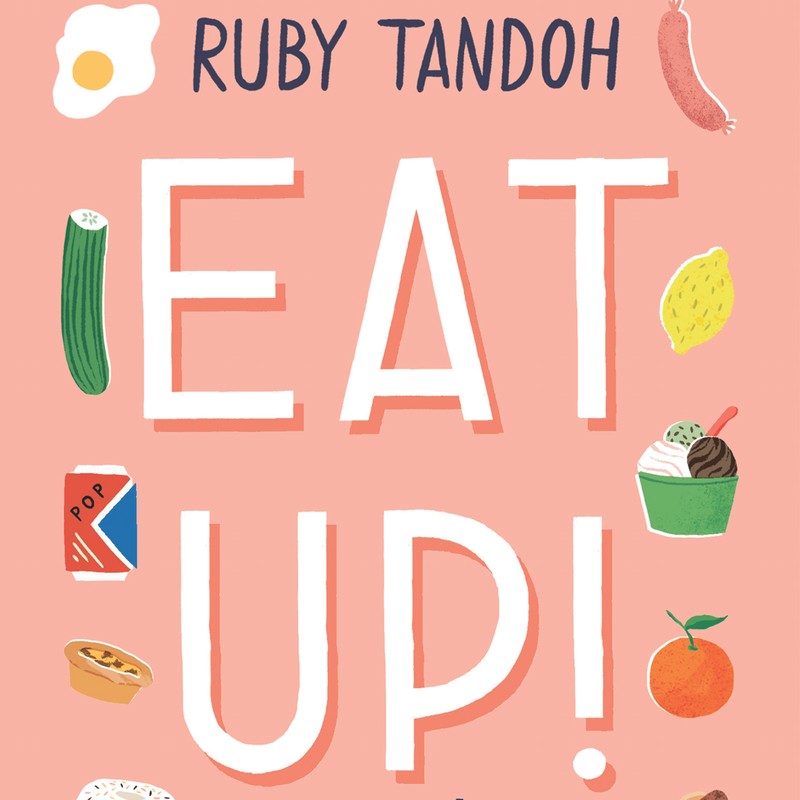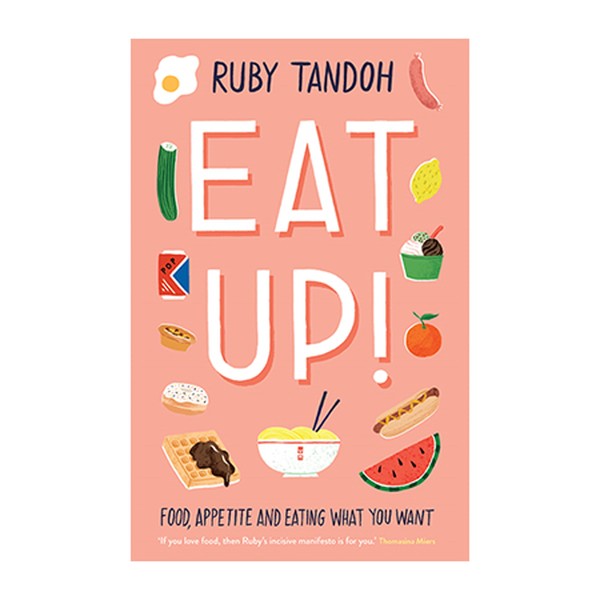Book Review: Eat Up! By Ruby Tandoh
This Sunday, for the first time in a long time, I tucked into a huge bowl of pasta without the familiar hit of shame. It was Nigella’s Marmite spaghetti (If you haven’t tried it, do. Even, or perhaps especially, if you don’t like Marmite). Silky with butter and laden with an umami hit of parmesan, I let my fork twirl and twirl until it was fully loaded and, as I raised it to my mouth, I felt joyful. I didn’t even get delayed guilt, and I didn’t begin mentally calculating how much work I’d have to put in at the gym as penance. I just let those salty Marmite-y mouthfuls hit my tongue.
I started reading Ruby Tandoh’s Eat Up! on my commute last week. Vividly written, her first chapter on picking blackberries in her granny’s garden as a child had me staring out the window wistfully thinking of my own grandma’s raspberry jam that she used to make each summer, stashing the last jar at the back of a cupboard, saving it for when I’d pay a visit and we’d smear it over oatcakes for breakfast. This is the beauty of the book: Tandoh’s message – that you should eat what makes you happy, guilt free – isn’t eulogised, it’s peppered throughout 250 pages via relatable anecdotes and memory associations.
Her manifesto is laid out from the off: “I want you to love yourself enough not to feed yourself dry sandwiches for dinner, or skip eating altogether,” she begins. “The way you feel about food sits hand in hand with the way you feel about yourself, and if you eat happily and wholeheartedly, food will make you strong.” As someone who reviews restaurants as part of my job and sits on a train for a minimum of three hours a day, it can be hard to stay in shape. It can also be difficult to silence the internal critic that’s unleashed every time it’s just easier to make beans on toast when I get home at 8:30pm rather than something more nutritious. So Tandoh’s words within Eat Up! are often as comforting as some of the recipes she proffers. As she says, “When diet is such an integral part of our identity, it’s easy to succumb to the tempting idea that you can reinvent, resurrect and evolve simply by going on a diet. But it just doesn’t work that way”.
From Sylvia Plath and Nora Ephron to The Very Hungry Caterpillar, Tandoh weaves a rich tapestry of cultural voices to illustrate her journey to culinary acceptance. Whether it’s explaining the universally soothing concept of a cup of tea via TOWIE’s Gemma Collins or writing about how Chiron makes peace with his sexuality in Oscar-winner Moonlight, Tandoh builds her argument in a way that, often, has nothing to do with food and everything to do with how we feel about how we fuel our bodies.
Alongside the recipes at the end of each chapter (one simply offers instructions on how to drink an ice-cold can of your favourite fizzy drink), the book tackles many issues around the way that women are conflicted when it comes to what we put in our mouths. As well as disordered eating – which she admits that she has suffered with in the past – Eat Up! addresses emotional eating, fat shaming, judgement when eating in public (remember the ‘Women Who Eat On Tubes’ Facebook group?) and the rise of faux ‘experts’. She takes a swipe at You Are What You Eat’s ‘Dr’ Gillian McKeith. Ella ‘Deliciously Ella’ Mills gets a mention for her claims that her plant-based diet cured her of postural tachycardia, while Tom Kerridge’s Dopamine Diet bestseller gets a shout-out for its incorrect claims that cutting carbs and eating mostly protein is scientifically proven to make you happier. In a world that often appears to celebrate thinness at any cost, these takedowns are a satisfying read.
In her chapter, The F Word, she tackles the obvious criticism that this book will throw her way – the fact that Tandoh herself is slim. Yet she makes clear that she isn’t saying that you can eat whatever you like with no consequence – and this isn’t a self-help book, either. Rather, she aims to fill readers with a sense of joy when it comes to what’s on their plate. Yes, you should remember your five-a-day and get enough exercise. But she also wants women to stop the self-denial and anxiety around eating that’s become so prevalent.
Because it’s important to remember that food is about so much more that its calorie content. Cooking a meal, whether it’s a full roast dinner for six or a packet of instant noodles for one, is about creating rituals, gathering people around the table and spending time looking after yourself. Shame around sustenance shouldn’t even get a look in, even if the cake you’ve just baked has sunk or your custard’s curdled. As Tandoh says, “Be the first woman in the office to take a biscuit from the communal tin; be the person brave enough to take the last one too.”
DISCLAIMER: We endeavour to always credit the correct original source of every image we use. If you think a credit may be incorrect, please contact us at info@sheerluxe.com.



